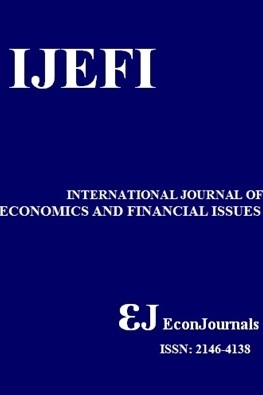Modelling the Macroeconomic Determinants of Workers’ Remittances: The Case of Jordan
Modelling the Macroeconomic Determinants of Workers’ Remittances: The Case of Jordan
Workers’ Remittances, Time Series Analysis, Cointegration, ARDL VECM, Jordan.,
- Başlangıç: 2011
- Yayıncı: İlhan ÖZTÜRK
Influence of Risk Management on Performance: An Empirical Study of International Islamic Bank
Girish Karunakaran Nair, Harsh Purohit, Nidhi Choudhary
Moroccan Banks Analysis Using CAMEL Model
Huseyin Kalyoncu, Muhittin Kaplan
Behavioral Finance: An Empirical Study of the Tunisian Stock Market
Mustapha Chaffai, Imed Medhioub
Modelling the Macroeconomic Determinants of Workers’ Remittances: The Case of Jordan
Ghazi Al-Assaf, Abdullah M. Al-Malki
Ferit KULA, Alper ASLAN, Ilhan OZTURK
Sberbank’s Entrance into Turkish Banking Sector and Reasons of This Decision
